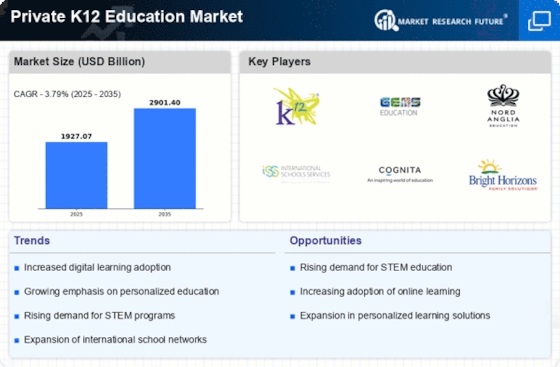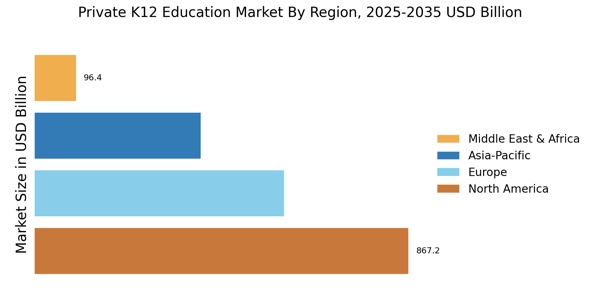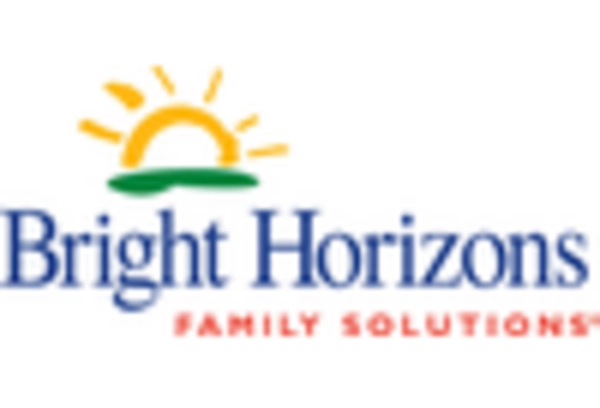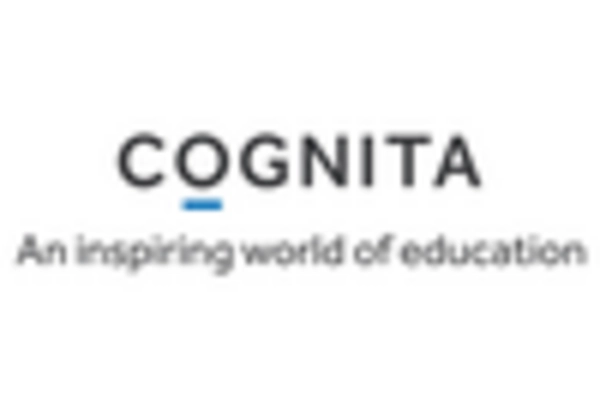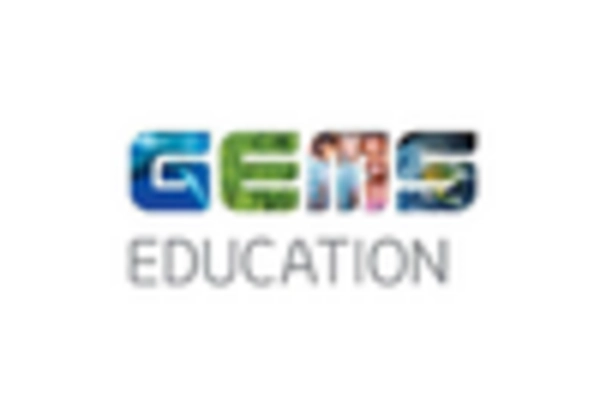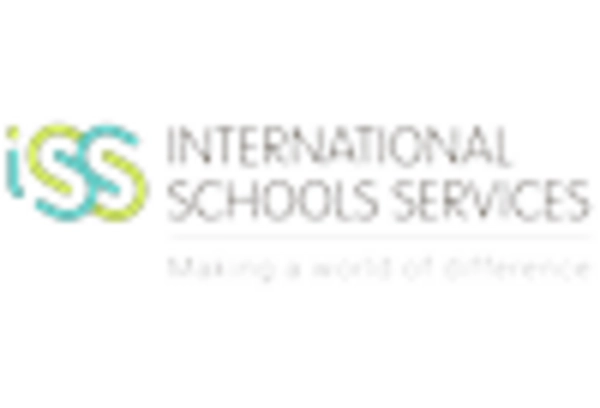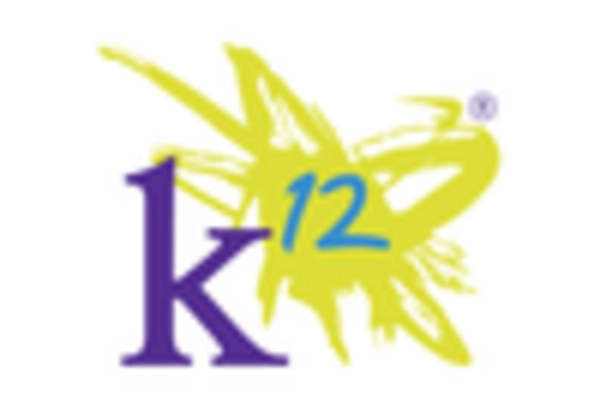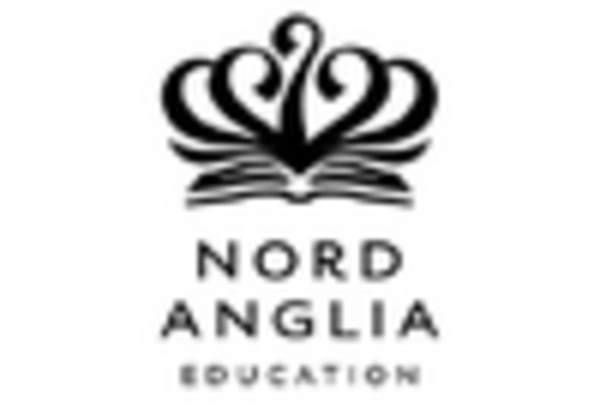Parental Involvement and Choice
Parental involvement plays a crucial role in the Private K12 Education Market, as families increasingly seek schools that align with their educational values and expectations. This trend is characterized by a growing preference for schools that encourage active participation from parents in the educational process. Research suggests that students whose parents are engaged in their education tend to achieve higher academic success. As a result, private K12 institutions are fostering environments that promote collaboration between parents and educators, offering opportunities for parents to contribute to school governance and decision-making. This heightened level of parental involvement not only enhances the educational experience for students but also strengthens the community around private schools, making them more appealing to prospective families.
Rising Demand for Quality Education
The Private K12 Education Market experiences a notable increase in demand for quality education, driven by parents' desire for enhanced academic outcomes for their children. This trend is reflected in the growing enrollment rates in private institutions, which have seen a rise of approximately 5% annually over the past few years. Parents are increasingly seeking schools that offer specialized programs, smaller class sizes, and individualized attention, which are often hallmarks of private education. As a result, private K12 institutions are adapting their curricula and teaching methodologies to meet these expectations, thereby enhancing their appeal. This rising demand not only influences enrollment figures but also encourages competition among private schools to innovate and improve their educational offerings, ultimately benefiting students and families alike.
Growing Emphasis on Extracurricular Activities
The Private K12 Education Market is witnessing a growing emphasis on extracurricular activities as a vital component of holistic education. Schools are increasingly recognizing that academic success is complemented by opportunities for personal development through sports, arts, and community service. This trend is reflected in the expansion of programs designed to foster creativity, teamwork, and leadership skills among students. Research indicates that students engaged in extracurricular activities tend to perform better academically and develop essential life skills. Consequently, private K12 institutions are investing in diverse extracurricular offerings to attract families seeking a well-rounded education for their children. This focus on holistic development not only enhances the educational experience but also contributes to the overall appeal of private schools in a competitive market.
Increased Investment in Educational Technology
The integration of technology into the Private K12 Education Market is becoming increasingly prevalent, as schools recognize the potential of digital tools to enhance learning experiences. Investment in educational technology has surged, with expenditures on digital resources and platforms expected to reach billions in the coming years. This trend is driven by the need for interactive learning environments that engage students and facilitate personalized learning. Schools are adopting various technologies, such as learning management systems, virtual classrooms, and educational apps, to support diverse learning styles. The effective use of technology not only improves student engagement but also prepares them for a technology-driven workforce, making private K12 institutions more attractive to parents seeking a modern education for their children.
Diverse Educational Offerings and Specialization
The Private K12 Education Market is characterized by an increasing diversity of educational offerings, as schools seek to cater to a wide range of student needs and interests. This trend includes the emergence of specialized programs focusing on areas such as STEM, arts, and language immersion. As parents become more discerning in their choice of educational institutions, private K12 schools are responding by developing unique curricula that differentiate them from traditional public schools. This specialization not only attracts families looking for tailored educational experiences but also enhances the overall quality of education provided. The ability to offer diverse and specialized programs positions private K12 institutions as leaders in educational innovation, thereby solidifying their role in the broader educational landscape.


